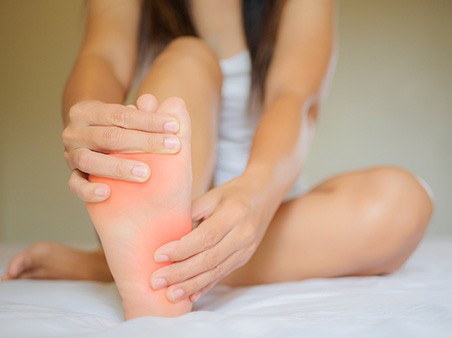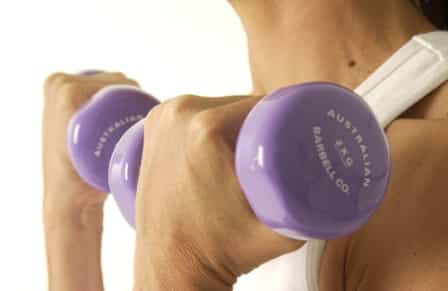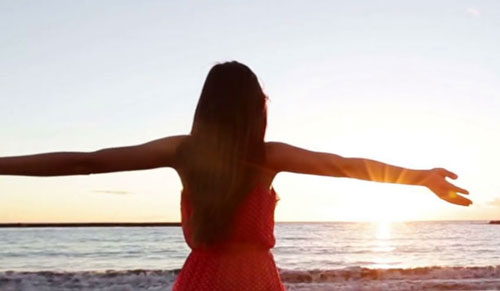December Newsletter

Is heel pain taking some of the fun out of your holiday break?
Many people complain of painful heels and sore aching feet after spending time at the beach. When walking barefoot on a soft surface like sand, some of these tissues can take on more stress than they can handle, and they start to tear and then inflame. This inflamation is referred to as plantar fasciitis.
Plantar fasciopathy is an irritation of the plantar fascia which is the fibrous connective tissue that helps support the arch of your foot. Plantar fasciopathy is typically felt as pain at the base of the heel that is worse with weight bearing and can be quite bad when first taking weight after a period of rest or taking those first few steps after getting out of bed in the morning.
Plantar fasciopathy usually occurs when the plantar fascia is exposed to an unaccustomed load. This may be related to a change in activity (amount or type), suboptimal footwear, prolonged periods of time standing or walking, or suboptimal foot mechanics.
Treatment usually involves determining and addressing what contributed to the overload (this may include taping in the short term), exercises to improve the capacity of the plantar fascia, footwear advice and activity modification with progression back to your desired loads and activities.
Don’t put up with heel pain? Book in to see one of our physios today for treatment and a plan to put a stop to your pain.
Clinic Hours over the Festive Season
Quick holiday tip!
If you haven’t been to the beach for a while it’s a good idea to gradually transition to barefoot walking.
✅ Wear supportive thongs on your feet when you’re not wearing shoes.
✅ Limit the time you spend barefoot … then each day gradually increase your walking time on the soft sand.
✅ For long walks on the sand consider wearing your joggers for the first half of the walk, and go barefoot on the way home.

Tips to enjoy a healthy & injury free festive season!
Physiotherapists see many common musculoskeletal conditions occurring over the Christmas break as people tend to push their bodies. Whether it’s spraining your ankle in high heels at a Christmas party, a musculoskeletal injury from an intense run along the beach after months of inactivity, or low back pain from driving for long distances or lying poorly on the couch watching the Boxing Day Test, there are a range of injuries to watch out for this season.
In order to enjoy a healthy and injury-free holiday, your Physio is encouraging you to focus on your health, both physically and mentally.
Avoid sitting for long periods
The holiday season can be a time where many Australians spend lots of time lying on the couch or driving long distances to holiday destinations. Physical inactivity or low levels of physical activity is the fourth leading cause of death worldwide¹. Avoid sitting in one spot for more than 30 minutes without a short break. Get up and move about for at least two minutes every 20-30 minutes. Regular changes in posture have been shown to improve comfort and reduce the risk of musculoskeletal injuries.
Buy gifts that encourage physical activity
This Christmas, rather than getting your kids an iPad, consider a present like a cricket bat or a netball that will encourage physical activity and ultimately leading to lifestyle choices in the long run. Active Healthy Kids Australia’s Report Card on Physical Activity for Children has identified that worldwide, children’s fitness has been declining at the rate of 3% to 5% per decade since 1970, with Australian kids now in the bottom third of the world in fitness and inactivity.
Our aim is to get you back doing the things you want and need to do, pain free! If you are experiencing pain call today.
Get Active
Adding a little more physical activity into your day doesn’t have to be a chore. Dust off the bicycles and go for a ride, plan a bushwalk or simply limit your couch time get up and get moving. If unsure what physical activity is right for you or your child’s age and experience, your physiotherapist can assess physical and motor development and suggest appropriate options. Start slowly and build up
To avoid any injuries from getting out and active, it’s best to start slowly and gradually build up. If you do injure yourself over the holidays, don’t ignore the pain, see your physiotherapist. Physiotherapists are highly qualified and trained to assess and treat all sorts of injuries and will help you get back on the beach again.

